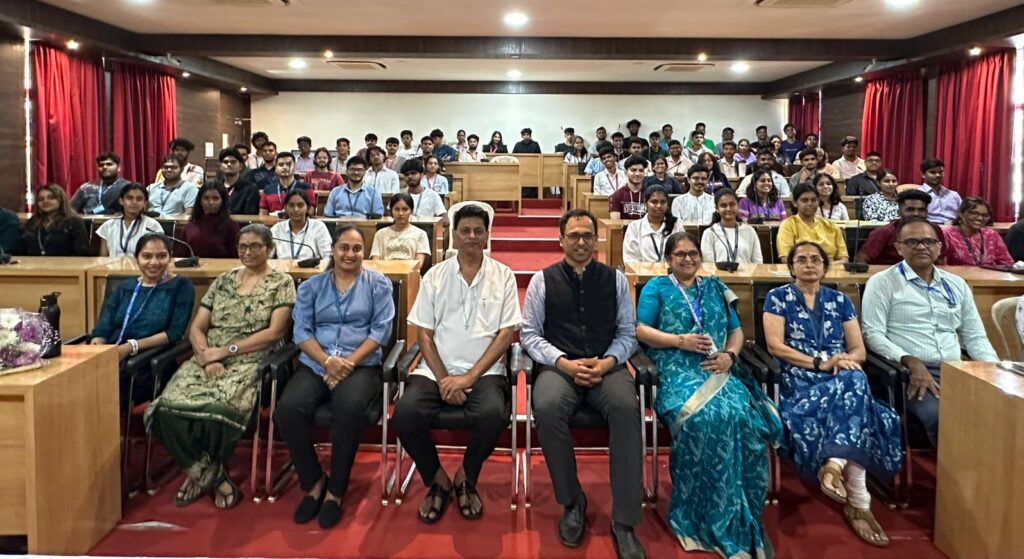Expert Talk on “Spatial AI- Past, Present and Future”

On January 29th, 2025, Don Bosco College of Engineering hosted an enlightening expert talk on ‘Spatial AI’, delivered by Dr. Rajat Talak, a distinguished Research Scientist in the Department of Aeronautics and Astronautics at the Massachusetts Institute of Technology (MIT), United States, offering an insightful exploration of its past, present, and future.
The talk provided a comprehensive overview of the development of Spatial AI, tracing its origins and the challenges faced in its early stages. Dr. Talak discussed how these challenges were addressed and optimized in the present and highlighted the future opportunities and advancements in the field. He provided valuable insights into the integration of computer vision, robotics, and artificial intelligence to enable seamless interaction between machines and the physical world.
During the session, he highlighted several applications of Spatial AI, such as augmented and virtual reality (AR/VR), autonomous vehicles, smart cities, and industrial automation. The talk delved into technical aspects, including the autonomy stack, which refers to the software strategies used to interpret sensor inputs and make automated decisions. A significant focus was on SLAM (Simultaneous Localization and Mapping), a technique that enables machines to map their surroundings while navigating in real time. The creation of 3D maps using drone imagery and multimodal data was also discussed, challenges such as scalability and abstraction in large environments, were addressed alongside advancements like hierarchical 3D scene graphs and memory-efficient solutions using NVIDIA processors. These innovations allow systems to efficiently store and process spatial data, enabling the scaling of AI solutions to more extensive and complex environments.

He further illustrated that future advancements aim to improve abstraction, language, motion, and touch perception to tackle challenges in dynamic and large-scale space. He also discussed RGBD cameras, LiDAR sensors, and IMU sensors, which provide depth, motion, and color data for enhanced spatial perception. The talk emphasized the transformative potential of Spatial AI in revolutionizing industries and societal automation, paving the way for smarter and more interactive systems.
The faculty coordinators for this event were Prof. Flavia Leitao and Prof. Ajit Salunke, with the support of the Director, Rev. Father Kinley D’Cruz and the Principal, Dr. Neena Panandikar. Their efforts in arranging such an engaging and educational event provided an excellent platform for learning about advancements in Spatial AI and its applications.













 Visit Today : 826
Visit Today : 826